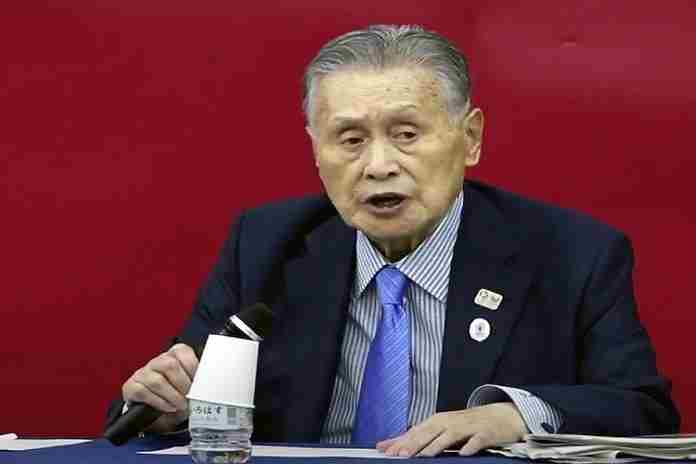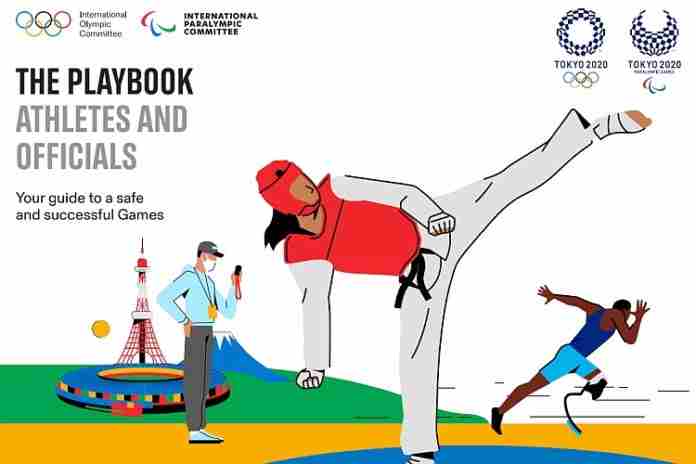(★ Friends: You did it! Happy to report that with our 43rd donor toward our December bill for server and support costs, we’re at exactly 100% of our goal! If you would like to help us prep for the next invoice, please donate here. Your enthusiasm is the reason this site keeps going. ★)
The furor over Tokyo 2020’s 83-year-old President, Yoshiro Mori, and his comments about women at a 4 February council meeting of the Japanese Olympic Committee continues unabated and has replaced concerns over the coronavirus as the no. 1 topic of discussion related to the Tokyo Games. Here’s a timeline, principally from coverage by Kyodo News, the principal Japanese news agency:
● 4 February: During a discussion of the Japanese Olympic Committee’s plan to increase the number of women on its Board from 20% to 40%, Mori said:
“The education ministry has been very insistent about choosing female directors. But a board meeting with plenty of women will make it drag on. Women have a strong sense of rivalry. If one [female] member raises her hand to speak, all the others feel the need to speak too. Everyone ends up saying something.
“Somebody told me that if we increase the number of women [on the Board], we have to also restrict their speaking time to an extent. Otherwise they’ll never stop, which is problematic.”
● 4 February: An immediate firestorm of criticism broke out, with JOC Director Kaori Yamaguchi – a former judo champion – responding, “Gender equality and consideration for people with disabilities were supposed to be a given for the Tokyo Games. It is unfortunate to see the president of the organizing committee make such a remark.”
● 4 February: Mori apologized for his remarks later in the day, saying “It wasn’t my intention for this to grow into a big thing. I thought it best to withdraw it.”
● 4 February: U.S.-based Human Rights Watch posted a story titled “A Gold Medal for Sexism in Japan” and which included: “The Japan Olympic Committee and the Tokyo 2020 Organizing Committee, which Mori chairs, have an important role to play when it comes to gender equality and stopping abuse of athletes in sport. Women in Japan are grossly under-represented in sports federation leadership.”
● 4 February: Reuters reported a statement from the International Olympic Committee, including: “Mori has apologised for his comments today. With this, the IOC considers the issue closed.”
● 5 February: Mori apologized at a news conference, saying: “The expression I used ran counter to the spirit of the Olympics and Paralympics. It was inappropriate. I would like to retract the remarks and apologize to anyone I have offended.
“I have no intention of stepping down. I have worked hard and given a lot the past seven years, and don’t feel I need to.”
Kyodo reported: “Mori’s comments caused a storm of backlash in Japan and abroad, with a hashtag in Japanese meaning ‘Please retire, Yoshiro Mori’ being tweeted more than 65,000 times.”
● 5 February: Japan’s Olympics Minister, Seiko Hashimoto said “I would like him to respond adequately so he does not repeat what he did,” and, more importantly, Tokyo Governor Yuriko Koike told reporters:
“It is the mission of the metropolitan government and the organizing committee to host a safe and secure games, but now we are facing a serious situation.
“The IOC has said the matter is closed, but I have heard that games volunteers have resigned and people have made phone calls in protest, so we need to look into that.”
JOC President Yasuhiro Yamashita said “He has apologized and retracted [the remarks]. I understand there are many opinions, but I would like him to serve in his position until the end.”
About 90,000 people had signed an online petition in one day, asking “to properly address” Mori’s comments.
● 6 February: The Tokyo organizers e-mailed the roughly 80,000 volunteers for the Games with a message of apology for Mori’s remarks.
● 6 February: The first female Board member of the Japan Rugby Football Union, who served when Mori was the head of the organization, said that she thought Mori’s comments were directed at the memory of her service.
Yuko Inazawa, 62, said “Instinctively I thought he was referring to me,” noting that she had only modest knowledge of the sport when she joined that Board in 2013. “I think conferences dragged on as I was asking questions from my standpoint as an amateur,” said Inazawa, a Showa Women’s University professor. “But that is absolutely not the same thing as saying women make conferences drag on.”
Kyodo reported that “Inazawa said Mori did not show any discriminatory behavior toward female board members during his time in charge.”
● 7 February: Kyodo reported “Japanese Prime Minister Yoshihide Suga said in parliament that Mori’s remarks ‘completely diverge from the important Olympic ethos of gender equality’ but declined to directly address calls for his resignation.
“Education minister Koichi Hagiuda said the comments were ‘inappropriate’ but that he also had no intention to call for the resignation of Mori, who holds powerful sway in the political, business and sporting arenas.”
Kyodo quoted a “government source” saying “If he resigns, there’ll be no Olympics. We need him to continue whatever the cost.”
● 8 February: Kyodo reported that 390 Olympic and/or Paralympic volunteers had resigned over Mori’s remarks, and “Two people have also pulled out of the torch relay, while the organizing committee’s call center received around 350 phone calls and 4,200 emails in a five-day span following the comments.”
● 8 February: A special meeting of the Tokyo 2020 Executive Board will be held this week, possibly Friday, to consider any further actions needed. Per Kyodo: “An online petition calling for the central and Tokyo metropolitan governments, as well as the organizing committee and the JOC, to ‘properly address’ Mori’s behavior has collected nearly 140,000 signatures as of late Monday.”
● 9 February: A Kyodo story extrapolated Mori’s remarks to a wider issue of sexism in Japan, reporting “‘Mr. Mori has been gaffe-prone, but this remark should not be attributed to his character. This is a problem of how decisions are made in Japan and how men in power are biased,’ Kiriu Minashita, a sociology and gender studies professor at Kokugakuin University, said of the 83-year-old former prime minister.”
● 9 February: Per Kyodo: “A group of female Japanese lawmakers wore white in parliament Tuesday in protest of recent comments by Tokyo Olympic organizing committee chief Yoshiro Mori widely criticized at home and abroad as sexist against women.
“Opposition members of the House of Representatives attended a plenary session wearing white jackets with white roses on their lapels, an homage to the early 20th century U.S. women’s suffrage movement.
“Their male colleagues also sported white roses in a show of solidarity, while members of the House of Councillors wearing white attended as observers.
“The protest was organized by the Constitutional Democratic Party of Japan with lawmakers from other opposition parties including the Japanese Communist Party and the Democratic Party for the People participating.”
● 9 February: The International Olympic Committee released a lengthy statement about its commitment to gender equality and noted:
“The recent comments of Tokyo 2020 President Mori were absolutely inappropriate and in contradiction to the IOC’s commitments and the reforms of its Olympic Agenda 2020. He apologised and later made a number of subsequent comments. …
“For all these reasons, the athletes, all Olympic stakeholders and the general public can rest assured that the IOC will continue to deliver on its commitment to gender equality, inclusivity, solidarity and non-discrimination.”
● 10 February: Koike pulled out of a four-party meeting on the Games scheduled for 17 February, and added that Mori’s comments “made everyone feel uncomfortable at a time when we are trying to overcome the pandemic and gear up toward the games. I am very disappointed as the head of the host city.”
● 10 February: Reuters reported: “Tokyo 2020 said its council and executive board would meet on Friday to ‘express their opinions’ on Mori’s remarks and discuss ‘future gender equality initiatives of the Tokyo 2020 organising committee’.”
And that’s where we stand now. Kyodo has reported that, as of Wednesday (10th), about 400 volunteers have pulled out and the online petition has been signed about 140,000 times.
Will Mori stay? Resign? Be fired? The decision will depend, as noted above by an unidentified source, on how the Games preparations, execution and – importantly – its impact, status and legacy – will be affected by his departure.
While she has not called publicly for Mori’s departure, Koike’s view is crucial. As the head of the Tokyo Metropolitan Government, which has invested a lot more money than any other partner in the Games, the 68-year-old has the highest ground in this discussion and how she wields this power may be a pivot point for the Games … and her political future.
You can receive our exclusive TSX Report by e-mail by clicking here. You can also refer a friend by clicking here, and can donate here to keep this site going.
For our 649-event International Sports Calendar for 2021 and beyond, by date and by sport, click here!


























